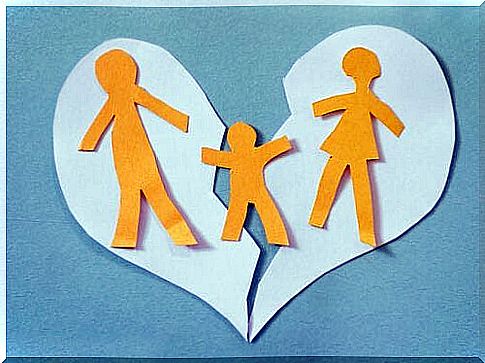Differences Between Separation And Divorce

They may seem the same, but in fact they are not. The differences between separation and divorce do exist, since they are two conditions with different purposes. Differences that directly affect the life of the spouse, as well as that of the entire family when having children.
When the spouses opt for the suspension of cohabitation, they must have a clear understanding of the situation. The first step is separation, the second, the definitive one in the absence of reconciliation, is divorce.
In this article we will address the differences between separation and divorce , hoping to shed some more clarity on the subject.
What are the differences between separation and divorce?
There are two formulas relating to separation. On the one hand, we have legal separation, that is, sanctioned by a court. It can be consensual if decided by both spouses or judicial if established by the judge. It authorizes the spouses to live apart. However, it is neither final nor does it have legal effects.
The other formula, known as de facto separation, implies the effective interruption of the marriage cohabitation without the intervention of the court. It takes place unilaterally or in agreement between the spouses. Again, it’s not a permanent solution.
Finally, divorce has legal effect on third parties and definitively dissolves the marriage bond. In this case it will be established by a judicial sentence.

Main differences between separation and divorce
There are 4 substantial differences between separation and divorce, to be taken into greater consideration from a legal point of view. If you are considering terminating your relationship, pay attention:
- While separation does not dissolve the marriage bond, divorce does so definitively through a judicial sentence.
- Divorce implies the cessation of the effects of the marriage also on the patrimonial level.
- After the separation, the spouses cannot remarry, either among themselves or with other people, this can only happen after the divorce.
- In the event of divorce, upon the death of the former spouse, the living person will not have any subsequent rights.
There are also aspects for which the two formulas are similar, except for the temporary effect of the separation.
Once the separation or divorce sentence has been issued, the measures regarding the assistance and custody of the children, the visiting regime, the costs of child support, custody, the dissolution of the property regime, the use of of housing, etc.
Psychological differences between divorce and separation
Interestingly , separation is often tougher than divorce. As is well known, before reaching the definitive dissolution of the marriage, there is a separation. Phase in which the marriage is not yet dissolved, at least until the divorce decree is issued. It is therefore a period in which there is still some hope of reconciliation and saving the marriage.
In short, separation is the first step, but also the most difficult one to take in the face of a marriage crisis. However, by the time the divorce decree arrives, it is likely that both spouses have already rebuilt their lives, so the situation shouldn’t be so traumatic. In fact, it can also be considered a liberating experience.
It is also likely, however, that one of the spouses still has hopes of reconciliation and considers the divorce decree as the final proof that the relationship has finally ended. In this case it could be a difficult time for either of them.

Separation or divorce
Both situations are difficult and some characteristics that resemble the grieving process may arise in both spouses :
- Feeling of loss of expectations and ideals.
- Feeling that you have failed; which can also generate feelings of guilt.
- Suffering for children and fear of change.
- Self-esteem issues. You look at the past by blaming yourself.
- There is also the risk of falling into depression, it is never easy to end a long relationship.
- Anxiety is also a common fact. Episodes of insomnia may also appear.
- Episodes of post-traumatic stress disorder can occur, especially in cases of domestic violence.
- One of the spouses may show symptoms of maladjustment and a tendency towards isolation.
This is not a pleasant situation for anyone, but however difficult you have to try to rationalize and take back the reins of your life, whether it is separation or divorce, especially in the presence of children.









